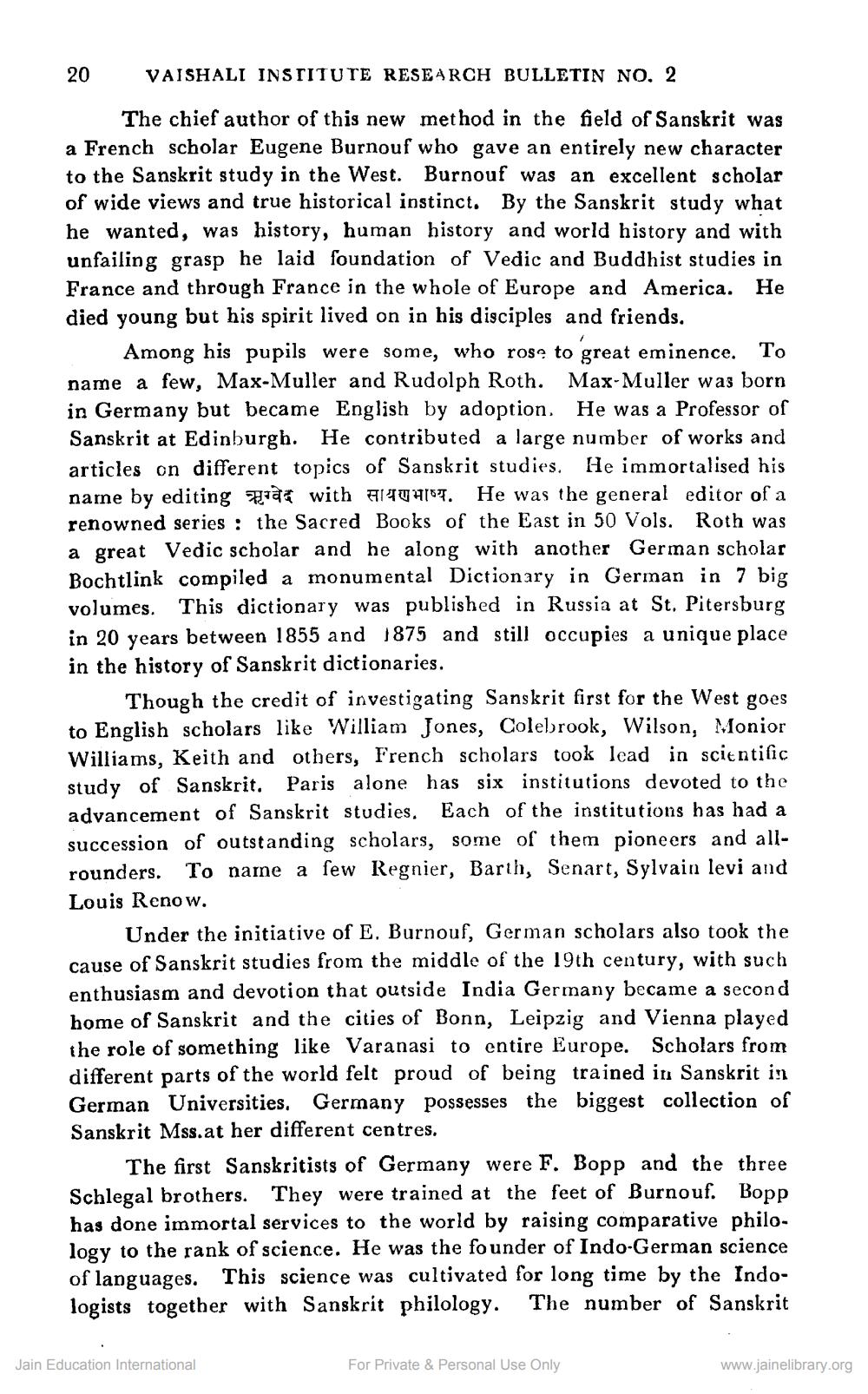________________
20
VAISHALI INSTITUTE RESEARCH BULLETIN NO. 2
The chief author of this new method in the field of Sanskrit was a French scholar Eugene Burnouf who gave an entirely new character to the Sanskrit study in the West. Burnouf was an excellent scholar of wide views and true historical instinct. By the Sanskrit study what he wanted, was history, human history and world history and with unfailing grasp he laid foundation of Vedic and Buddhist studies in France and through France in the whole of Europe and America. He died young but his spirit lived on in his disciples and friends.
Among his pupils were some, who roso to great eminence. To name a few, Max-Muller and Rudolph Roth. Max-Muller was born in Germany but became English by adoption. He was a Professor of Sanskrit at Edinburgh. He contributed a large number of works and articles on different topics of Sanskrit studies. He immortalised his name by editing ऋग्वेद with सायणभाष्य. He was the general editor of a renowned series : the Sacred Books of the East in 50 Vols. Roth was a great Vedic scholar and he along with another German scholar Bochtlink compiled a monumental Dictionary in German in 7 big volumes. This dictionary was published in Russia at St. Pitersburg in 20 years between 1855 and 1875 and still occupies a unique place in the history of Sanskrit dictionaries.
Though the credit of investigating Sanskrit first for the West goes to English scholars like William Jones, Colebrook, Wilson, Monior Williams, Keith and others, French scholars took lead in scientific study of Sanskrit. Paris alone has six institutions devoted to the advancement of Sanskrit studies. Each of the institutions has had a succession of outstanding scholars, some of them pioneers and allrounders. To name a few Regnier, Barth, Senart, Sylvain levi and Louis Renow.
Under the initiative of E. Burnouf, German scholars also took the cause of Sanskrit studies from the middle of the 19th century, with such enthusiasm and devotion that outside India Germany became a second home of Sanskrit and the cities of Bonn, Leipzig and Vienna played the role of something like Varanasi to entire Europe. Scholars from different parts of the world felt proud of being trained in Sanskrit in German Universities. Germany possesses the biggest collection of Sanskrit Mss.at her different centres.
The first Sanskritists of Germany were F. Bopp and the three Schlegal brothers. They were trained at the feet of Burnouf. Bopp has done immortal services to the world by raising comparative philology to the rank of science. He was the founder of Indo-German science of languages. This science was cultivated for long time by the Indologists together with Sanskrit philology. The number of Sanskrit
Jain Education International
For Private & Personal Use Only
www.jainelibrary.org




